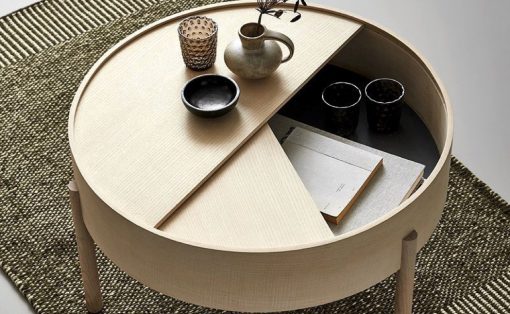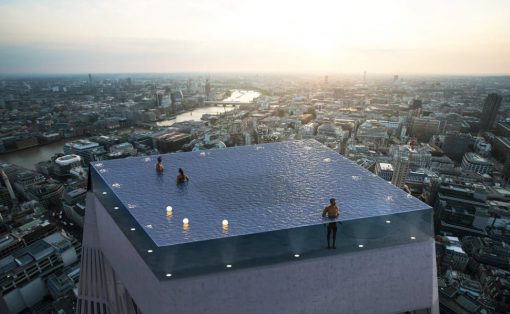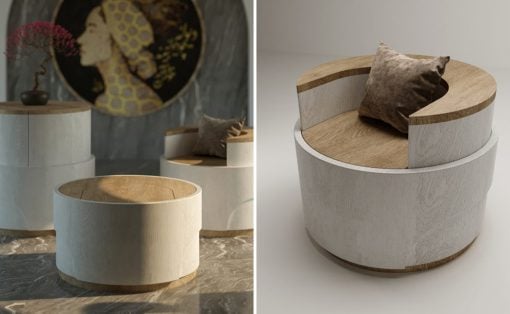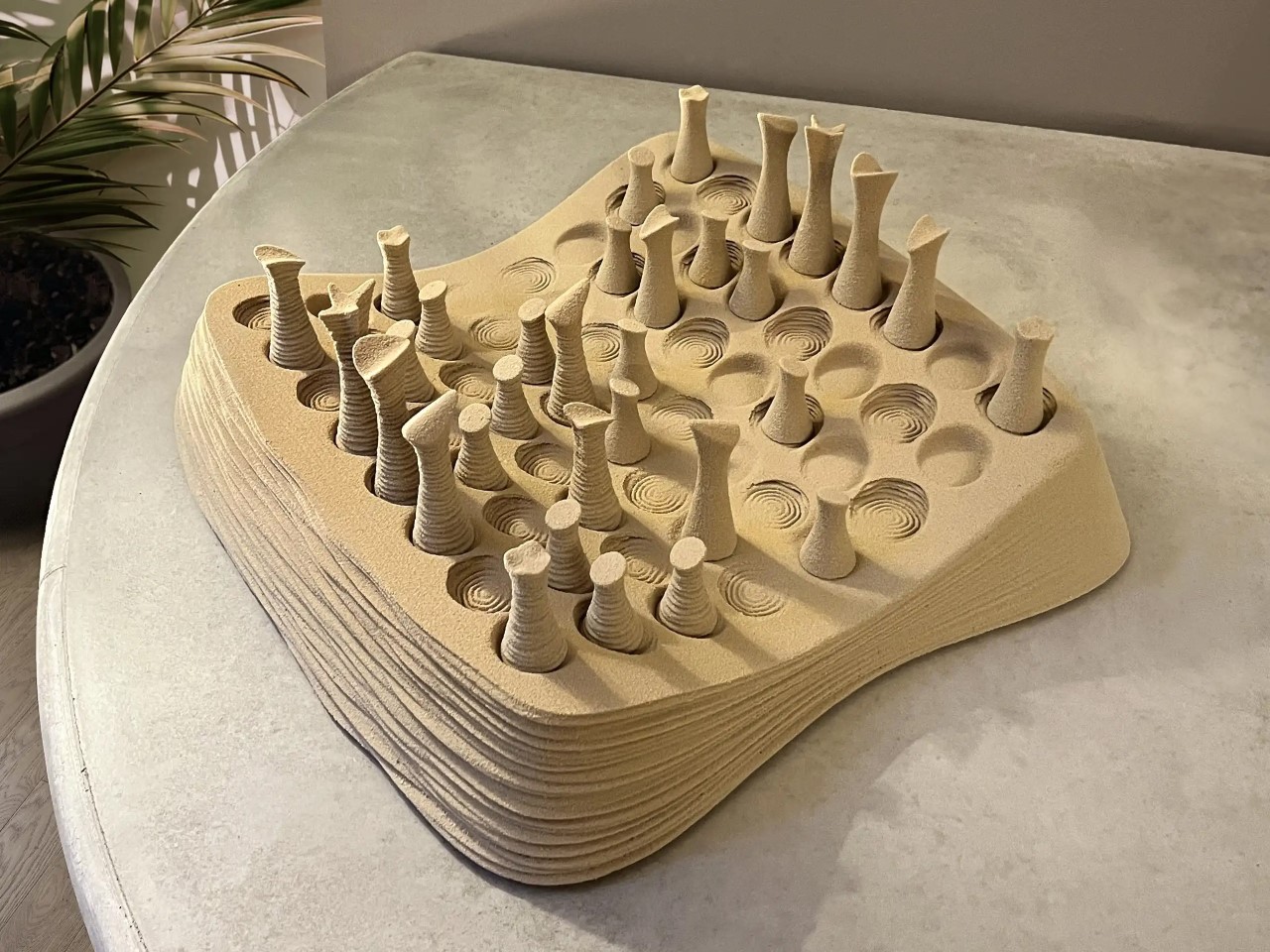
Not to be confused with the popular movie franchise involving different families clashing in a desert alien planet with sand-eating worms, the Dune Chess Set is more of a competitive board game crafted out of an unlikely material – sand. Most chess sets are made from either wood, plastic, or rare materials like ivory, but the Dune Chess Set opts for another material that’s unlikely as a choice, but lends a wonderful characteristic to the chess set. Crafted out of sand, the chess set leans heavily into its material for design inspiration. The sandcastle-esque form is very deliberate, as are the ridges along the side of one set of pieces, and the board itself, reminiscent of how sand erodes rocks in a desert. The result, something uniquely beautiful and engaging not just in a visual manner but a tactile one too.
Designer: Rory Noble-Turner
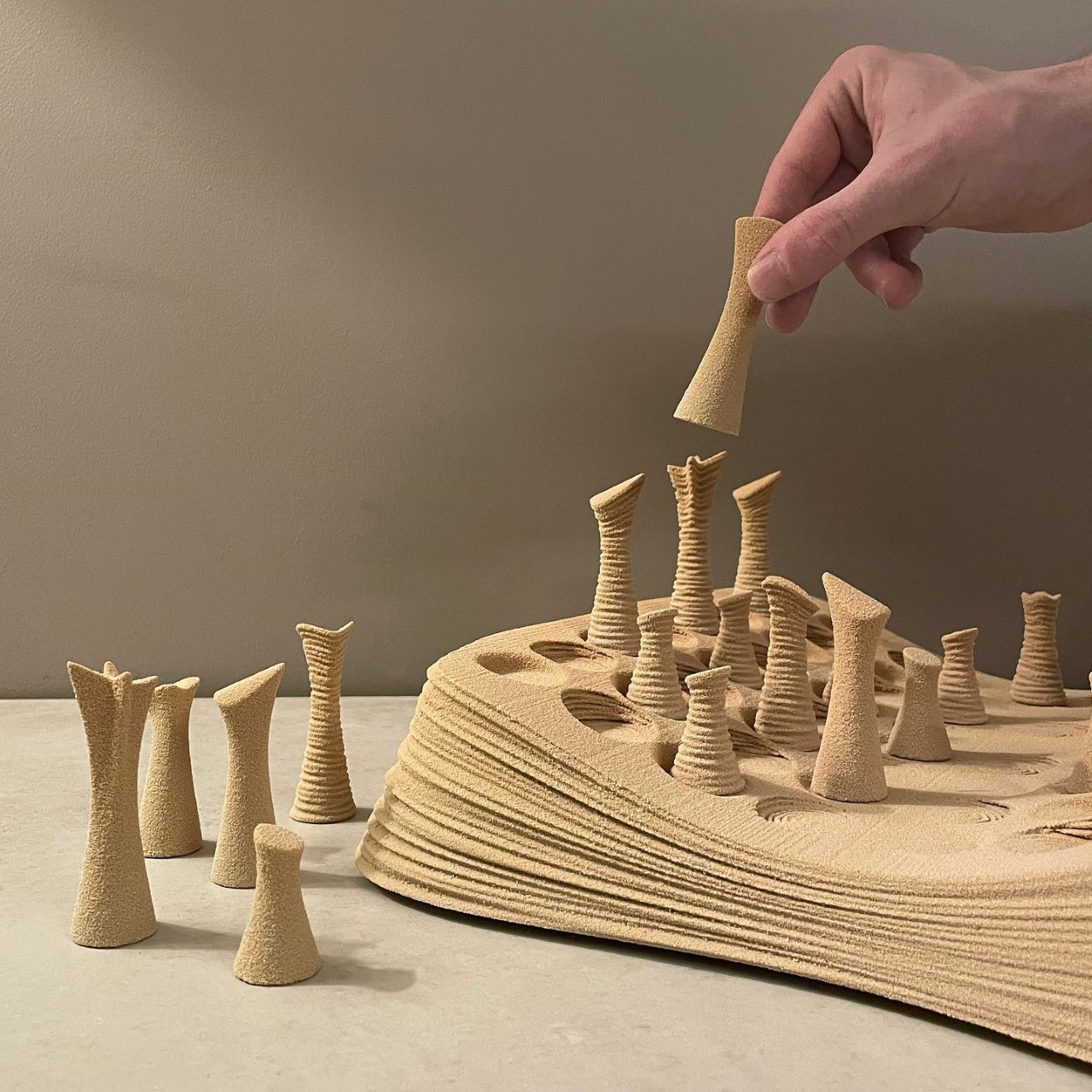
Chess is more than just a game; it’s a ritual that has connected people across centuries. With every move, players step into a shared history, one that transcends time and culture. Rory Noble-Turner, an architect captivated by the intricate and sculptural qualities of design, saw the chessboard as the perfect stage to explore these ideas.
Sand, with its ever-shifting nature, became his muse. It’s a material that resists definition, flowing, changing, and responding to its environment. Much like the evolving dynamics of a chess match, sand embodies unpredictability and transformation. Noble-Turner’s challenge was to capture the elusive beauty of sand’s movement and freeze it in time without losing its essence.

In an age where luxury often means flawless finishes and untouchable beauty, the Dune Chess Set dares to do the opposite. Its appeal lies in its imperfection, the ripples and textures that invite fingers to explore. The contrast between smooth and rippled surfaces not only differentiates the opposing chess pieces and board spaces but also mirrors the duality of sand: calm and turbulent, solid and fluid.
This tactile focus is a deliberate choice, challenging the notion that luxury objects are meant to be admired rather than experienced. Noble-Turner’s design isn’t just meant to be seen; it’s meant to be felt, touched, and engaged with, awakening a sensory connection in a world increasingly disconnected from physical sensation.

Creating this chess set was as much a technical feat as it was an artistic journey. Using 3D sculpting tools typically reserved for the visual effects industry, Noble-Turner painstakingly crafted the rippled textures that define the set’s aesthetic.
Months of trial and error were dedicated to perfecting the randomness, density, and depth of the ripples. Achieving a natural, windswept look wasn’t straightforward, it required deep dives into scripting forums and countless refinements. This relentless pursuit of authenticity speaks to the designer’s commitment to blending the organic beauty of nature with the precision of modern technology.

At its core, the Dune Chess Set is more than just a game; it’s a statement about our relationship with objects and the world around us. As technology pulls us further into virtual spaces, our connection to physical sensations wanes. Noble-Turner’s design serves as a gentle nudge, reminding us of the importance of touch in creating meaningful experiences.
Each ripple, each smooth surface, is a call to reconnect, with the game, with the material, and with ourselves. The set doesn’t just ask to be played; it asks to be felt.
The Dune Chess Set isn’t just a reimagining of an ancient game; it’s a bold intersection of tradition, materiality, and innovation. By transforming sand, a symbol of impermanence, into a timeless work of art, Rory Noble-Turner invites us to rethink what design can be.




